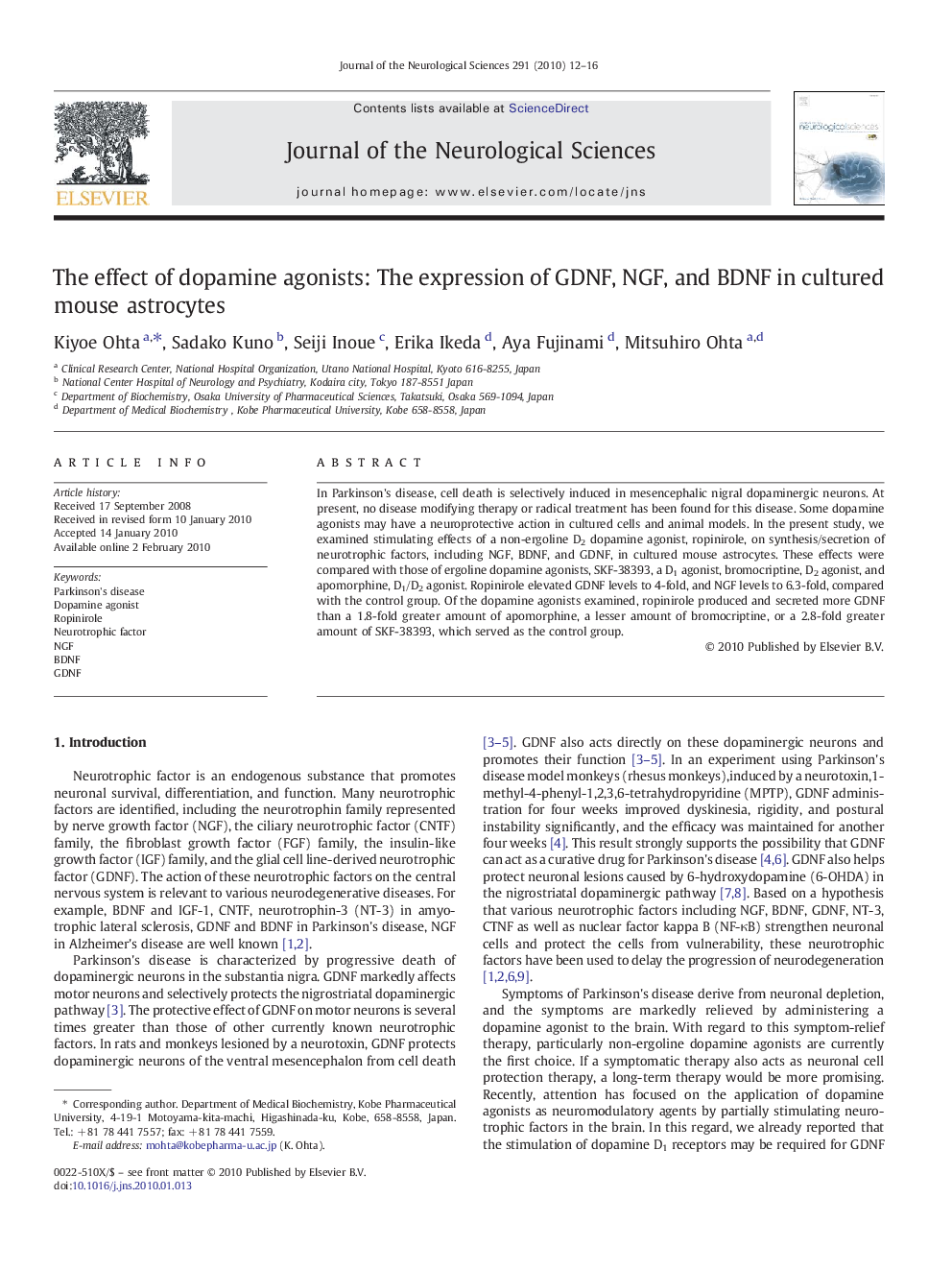| Article ID | Journal | Published Year | Pages | File Type |
|---|---|---|---|---|
| 1914717 | Journal of the Neurological Sciences | 2010 | 5 Pages |
In Parkinson's disease, cell death is selectively induced in mesencephalic nigral dopaminergic neurons. At present, no disease modifying therapy or radical treatment has been found for this disease. Some dopamine agonists may have a neuroprotective action in cultured cells and animal models. In the present study, we examined stimulating effects of a non-ergoline D2 dopamine agonist, ropinirole, on synthesis/secretion of neurotrophic factors, including NGF, BDNF, and GDNF, in cultured mouse astrocytes. These effects were compared with those of ergoline dopamine agonists, SKF-38393, a D1 agonist, bromocriptine, D2 agonist, and apomorphine, D1/D2 agonist. Ropinirole elevated GDNF levels to 4-fold, and NGF levels to 6.3-fold, compared with the control group. Of the dopamine agonists examined, ropinirole produced and secreted more GDNF than a 1.8-fold greater amount of apomorphine, a lesser amount of bromocriptine, or a 2.8-fold greater amount of SKF-38393, which served as the control group.
